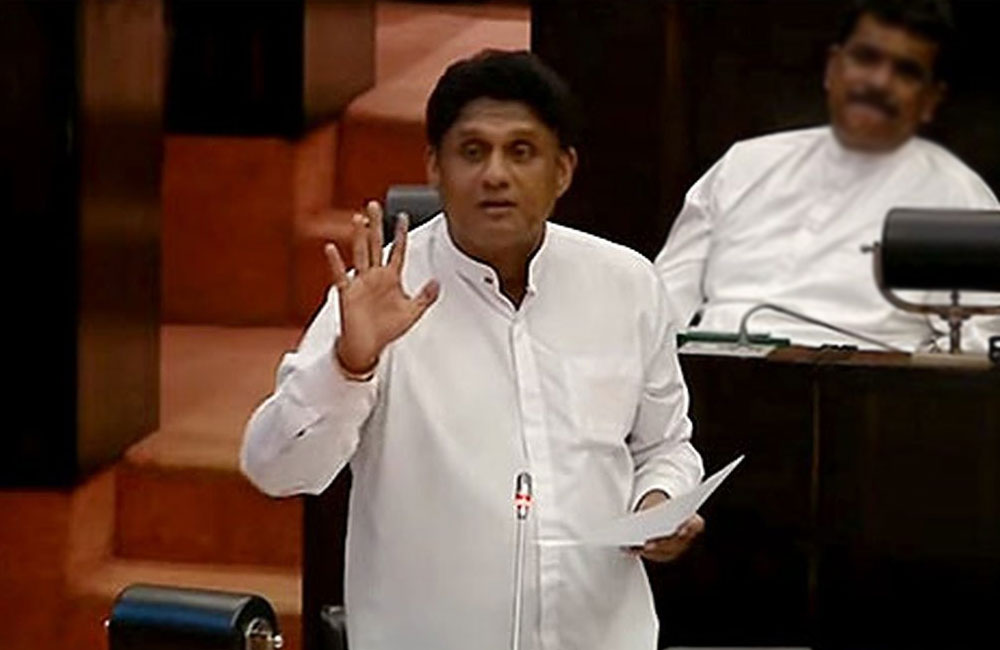Opposition Leader Sajith Premadasa stated that despite Sri Lanka producing 2.8 million metric tons of rice annually while the country’s requirement amounts to only 2.4 million metric tons, rice continues to be imported — a matter he described as a national tragedy. He expressed these views during the parliamentary debate on agriculture, with a particular focus on paddy cultivation.
Ensuring financial strength is a duty of the government
“The so-called National Agricultural Policy being formulated by the present government should not remain confined to paper; it must be realized in practice. Until such time, the Samagi Jana Balawegaya will stand firmly for the rights of the farming community. We must reflect on the factors that have contributed to the decline in productivity of paddy cultivation. During a period when Sri Lanka’s agricultural sector was performing at a high level, the ban on chemical fertilizer was introduced. As a result, paddy production dropped by 34%. Even today, fertilizer usage remains 35% lower than the recommended level. Therefore, it is the duty of the government to provide the necessary financial strength to encourage farmers to apply fertilizer at the recommended levels in upcoming seasons, and such support must be extended through extension services.”
The issue of guaranteed prices
“There continues to be a problem with the guaranteed price. Although it is claimed that farmers are offered Rs. 120 per kilogram, this is not a true guaranteed price but rather a controlled price mechanism. No government has ever purchased the entire harvest; what is bought is a limited quantity, also under price control. Even ministers of the government themselves have acknowledged that this stable price should be between Rs. 140 and Rs. 150.
Rising costs of paddy cultivation
“Although there has been talk of enacting a guaranteed price law through parliamentary regulations, this has not materialized. Meanwhile, the farmer continues to suffer due to high costs ranging from seed, fuel, fertilizer, and equipment to other necessary activities. Hence, there must be a program to dismantle monopolies and empower small- and medium-scale mill owners. The government should take the lead in strengthening them, both through clear programs and financial support. In addition, key actors within the value chain must be properly managed.
“There is also a shortage of certified seed paddy. While only 16% of the requirement is currently met, this must be increased to 25%, and better varieties should be developed.”
The need for modern technology
“Modern technology must be utilized to secure high-quality harvests similar to those achieved in the Netherlands. To this end, fertilizer subsidies must be provided adequately and on time. The reality is that the financial allocation for fertilizer subsidies at present is insufficient. Although the country has storage capacity for 350,000 metric tons, the facilities within the state sector too must be expanded.”
Addressing the human–elephant conflict
“Moreover, effective solutions must be found to the human–elephant conflict, in order to minimize crop damage, loss of life, and property destruction. A comprehensive program addressing these concerns should be implemented.
“In the broader cycle of agriculture, from production through to marketing, the government must establish a well-coordinated and structured approach. A National Crop Plan and a National Agricultural Plan are essential to ensure long-term stability and productivity within the sector.”

Leave your comments
Login to post a comment
Post comment as a guest